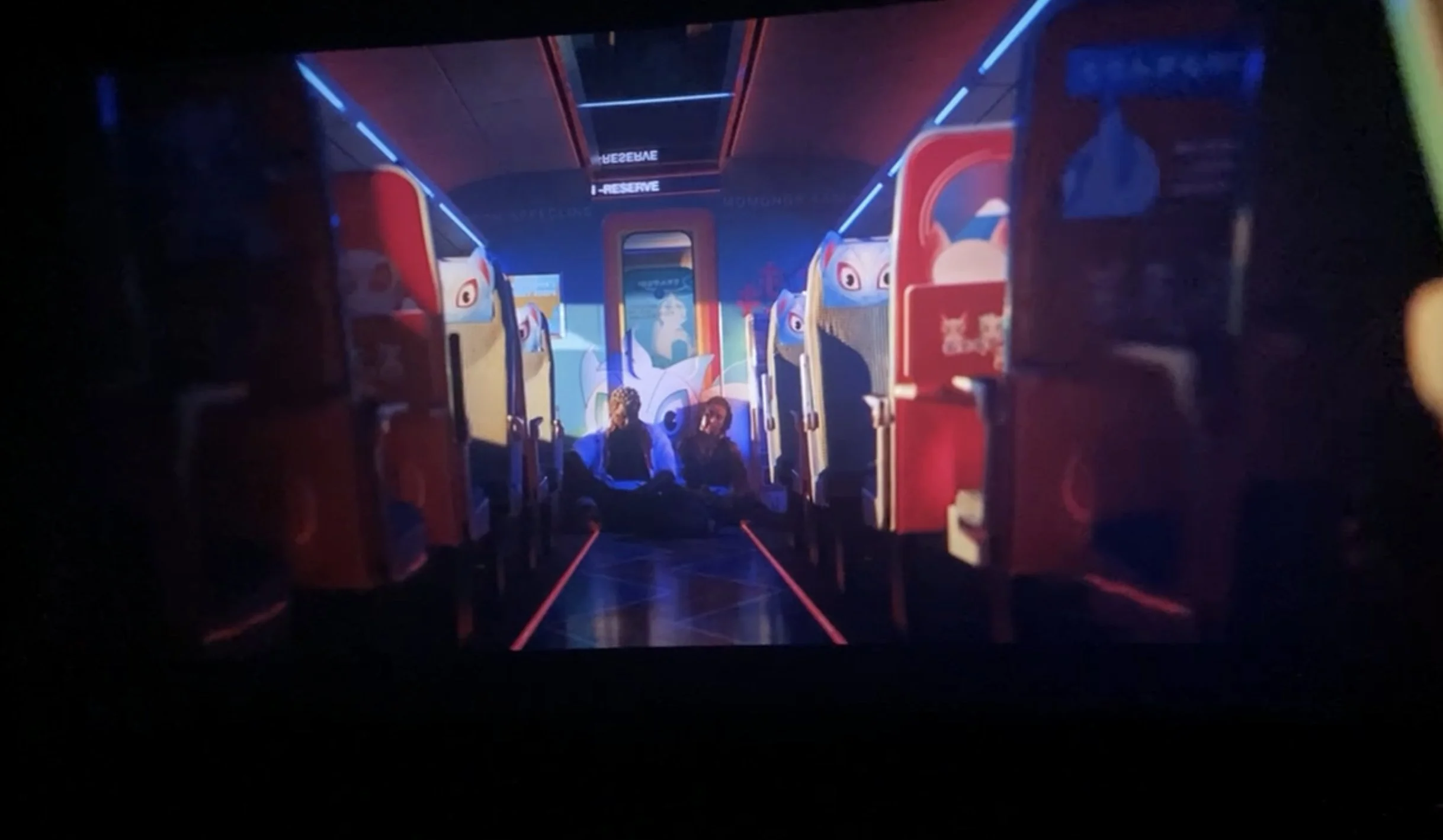
Sometimes like a child without a mother I want to go on a trip by myself
But the heart changes quickly.
If I became a child without a mother I can't talk about love to anyone.
- Tokiniwa Haha No Naiko No Youni (Sometimes Like A Child Without A Mother), Carmen Maki, Bullet Train OST
Like the broken children of this under world, riding a nightmare on a Diesel Train setting (a la Lemon's playbook), the main characters on 'Bullet Train' are very much on an un-parented trip from Tokyo to Kyoto where the only love that thrives is the poisonous kind – again, all snakely-world-bleeding-out-the corrupted-death-mongering-pandemic-rut puns intended.
Whether intergenerational is the right term or not, the directorial team of Dan Leitch, Jonathan Sela, Chris Farmer, Elizabeth Keenan, Christian Ganea (director, director of photography, art/set directors and colorist) seem to have had a blast mixing color and sound theory metaphorically with the emotional narrative Kotaro Isaka (author of 'Maria Beetle’, the original book) crafted.
For some of us Gen Xer's, Japan's reputation for exporting colorful cultural artefacts to thrill global youth and adults (via anime complicatedly and aptly violent as that is) dates back to the 'Hello Kitty' (by Sanrio) craze of the 1980s, and its many descendant brands, including the specially created Monomon animated character on the 'Bullet Train'. Touching on both obsessive cults of cuteness and violence, Monomon lends it's pink and white adorability to lighten the very design of the train and it's interiors, masking the sinister intentions on the train, while lending itself as a disguise for the most deadliest assassin, the Hornet (Zazie Beetz).
And if that wasn't enough to keep the cinematically excitable glued to the roller coaster of terror, riffing off Lemon's (mercenary played by Brian Tyree Henry) philosophical musings on ‘Thomas the Tank Engine’ are spread across the tracks from Japan to Kyoto. Right up to moment when Tangerine (Lemon's brother in arms, played by Aaron Taylor-Johnson) notices the incriminating Diesel sticker on the deadly Prince's (Joey King) back.
The death carnival juxtaposition does not stop there, these two 'Couple of (sour) Fruits' (Da Big Fella on the soundtrack) play the game of death with such flair, from their well styled suits, the pride they take on their work set to joyful odes of none other than 'I Am Forever Blowing Bubble's' ( Engelbert Humperdinck) and their touchingly deep emotional bond. If you had to go through a slaughter reel with the nihilistic flair Millennials love, this crazed mix works. From one angle, the soundtrack itself is intergenerational education on setting the filmic mood of such modern action comedy genres. Hats off to Dominic Lewis and others with dibs on the music.
All night long, this group of tragically parented (or un-parented) mercenaries grapple with the invisible off-train forces that influence them. From the Elder (Hiroyuki Sanada) to Maria (handler, Sandra Bullock), to White Death (Michael Shannon) it is a range of complicated parental figures, indeed. And we use the 'parent' here as the spaces of wisdom and healing humans seek through the life cycle.
Despite the globalization of Hollywoodisms and the justifiable prominence of the scenic legend that is Brad Pitt (who plays Ladybug, the mercenary in transition at the heart of the film), the cast and their performances balance out evenly. Especially with the narrative prominence of the destructive Twins (Lemon & Tangerine), their childlike folklore and on screen presence. A balance you would miss were you to rely on initial reviews, or rush watched the ‘Bullet Train’. A balance that is non-linear, and one of the more exciting aspects of the film given the role the two Elders play. A balance misunderstood by critics in the initial weeks of the film release and one to dig into for our favourite one to come - Node 3.
[next week: new visualized version of this Node]
‘Bullet Train’ filmic digressions in three songs
Act 1/ node 2
Tokiniwa Haha No Naiko No Youni

